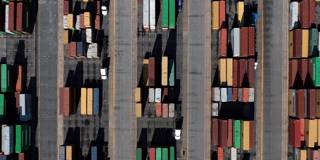Supply shortages during the COVID-19 pandemic have set off a rush to reshore or nearshore production in the name of national security and resilience. But policymakers tasked with shaping new industrial policies should have no illusions that there are shortcuts to economic development.
WASHINGTON, DC – Pandemic-induced supply shortages have heightened national security concerns in advanced economies. Worried about overdependence on Chinese manufacturing, the United States, the European Union, and Japan have each proposed initiatives to relocate production. And they are not alone. The geopoliticization of the trade-industry-security nexus is gaining momentum in the developing world as well. From the Western Balkans to Latin America, governments see a major post-COVID economic opportunity in reshoring and nearshoring production.

WASHINGTON, DC – Pandemic-induced supply shortages have heightened national security concerns in advanced economies. Worried about overdependence on Chinese manufacturing, the United States, the European Union, and Japan have each proposed initiatives to relocate production. And they are not alone. The geopoliticization of the trade-industry-security nexus is gaining momentum in the developing world as well. From the Western Balkans to Latin America, governments see a major post-COVID economic opportunity in reshoring and nearshoring production.